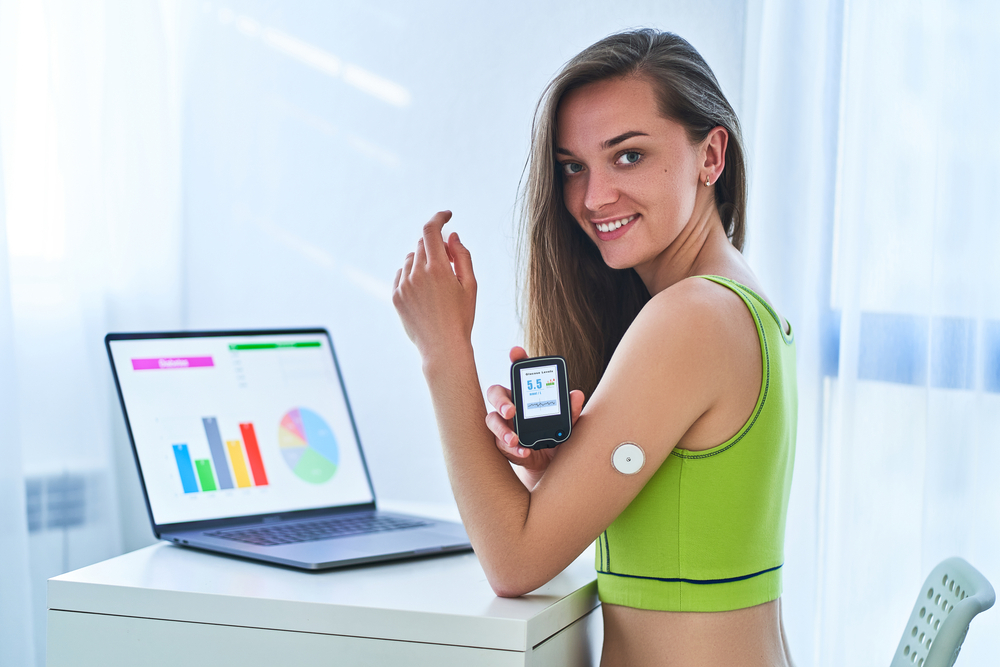Continuous Glucose Monitoring

What is involved in CGM?
Continuous glucose monitoring (CGM) involves wearing a small glucose sensor inserted in the subcutaneous (fatty tissue) layer under the skin, usually in the abdomen or upper, outer flank/ buttock.
The sensor measures glucose every 5 minutes and is normally worn for a 6 day period. Once complete, the data is uploaded and plotted onto graphs, enabling identification of glucose patterns.
Do I need CGM?
CGM may be recommended by your doctor if you are experiencing fluctuations or concerning trends in your blood glucose levels, especially overnight.
CGM can be offered to people using insulin pumps as well as to those on multiple daily injections, including people with type 1 or type 2 diabetes.
CGM can be a very valuable tool for both you and your diabetes team to see a big picture of what is happening with your diabetes. CGM can shed light on factors that influence your glucose levels to guide day-to-day decisions and adjustments in your management.
Types of CGM
There are two types of CGM:
- Real-time (glucose data seen on a small screen device as it is happening)
- Retrospective (glucose data is recorded and looked at after the study is finished)
Insertion of the sensor and device training
If your doctor has referred you for CGM, you will have been consented to have the investigation and will be provided with admission paperwork and information.
You are requested to return your signed admission paperwork to the Diabetes Education Service before your admission day.
You will receive the following appointments:
- An admission appointment for sensor insertion and device training
- An admission appointment for sensor removal and data uploading
- An RMH outpatient Diabetes Clinic appointment to review the CGM data with your referring doctor or an endocrinologist
- Appointments for the insertion and removal are held in Diabetes Education Service
Please allow up to 2 hours for appointments. A medical certificate can be provided at your request.